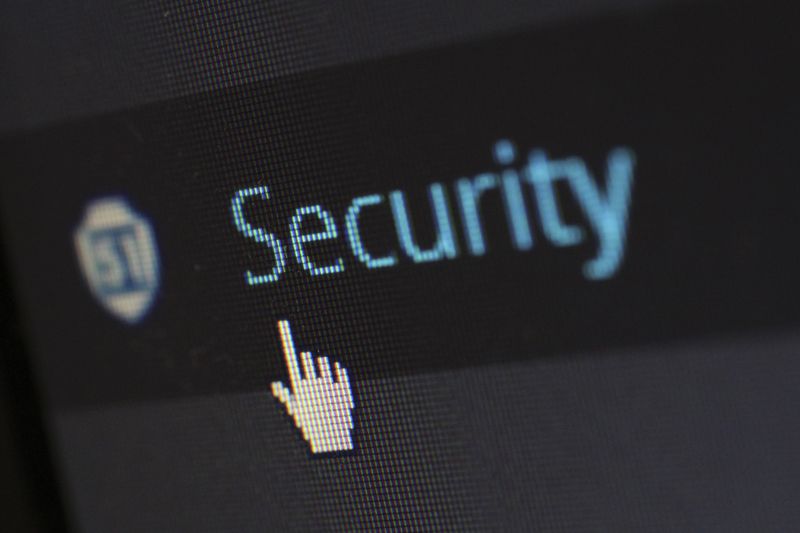ICS/OT Critical Infrastructure Stakeholders Gather for Day 2 of SecurityWeek’s 2023 ICS Cybersecurity Conference
Introduction
Yesterday marked the second day of the annual industrial cybersecurity conference hosted by SecurityWeek. Hundreds of industrial cybersecurity stakeholders gathered in Atlanta to discuss and analyze the latest trends and challenges in securing critical infrastructure. The conference featured a diverse lineup of speakers and sessions, covering a spectrum of topics ranging from military security testing to quantum computing and insider threats. The event also provided attendees with the opportunity to participate in interactive exercises and engage with industry experts.
Importance of Industrial Cybersecurity
As technological advancements continue to transform industries and infrastructure, the importance of robust cybersecurity measures cannot be overstated. Critical infrastructures such as power grids, water treatment plants, and transportation systems are increasingly connected to the internet, making them vulnerable to cyberattacks. These attacks not only pose a significant threat to the smooth functioning of essential services but also have the potential to cause widespread disruption and harm.
The 2023 ICS Cybersecurity Conference serves as a platform for stakeholders to come together, share knowledge, and devise strategies to mitigate these threats. By fostering collaboration and knowledge exchange, the conference plays a crucial role in strengthening the resilience of critical infrastructure against cyber threats.
Highlights from Day 2
Day 2 of the conference featured a range of sessions and panel discussions covering various aspects of industrial cybersecurity. In the morning session, US Marine Corps cyber analyst John Link provided participants with valuable insights into the life of a military security tester. Link discussed the methodologies, practices, and challenges involved in maintaining robust cybersecurity stances across diverse operational environments.
One of the key sessions of the day was a panel discussion on best practices for converging IT/OT security operations. Representatives from ExxonMobil, the Metropolitan St. Louis Sewer District, and Palo Alto Networks shared their experiences and insights on effectively integrating IT and operational technology (OT) security.
Roya Gordon, executive industry consultant for OT cybersecurity at Hexagon’s Asset Lifecycle Intelligence division, delivered a session on assessing the risk posed by insider threats to industrial environments. Insider threats are a significant concern in critical infrastructure, as adversaries with internal access can cause significant damage.
Scott McNeil, industrial network and security architect at Global Process Automation, discussed standards and best practices for securing industrial wireless infrastructure within a facility. Understanding potential interference with wireless communications is critical for maintaining a secure and reliable wireless network in an industrial setting.
In the afternoon session, Blaine Jeffries, senior OT security engineer at MITRE, presented the ‘Caldera for OT’ cybersecurity framework. This framework enables participants to simulate adversary actions in operational environments, helping organizations to better understand and strengthen their defenses against potential cyberattacks.
The day concluded with a session by Gerard Vidal, the CTO of Opscura, who discussed the potential impact of quantum computing on OT security. Quantum computing has the potential to break current encryption algorithms, posing a future challenge for industrial cybersecurity practitioners. Vidal shared valuable insights on techniques for increasing the longevity of existing cybersecurity solutions.
Internet Security and Privacy
While the conference provided valuable insights and solutions for industrial cybersecurity, it is essential to recognize the importance of internet security and privacy for attendees and participants. With the rise in cyber threats, it is crucial to take necessary precautions to protect confidential and sensitive information.
Participants attending the conference in person should ensure that their devices are securely connected to the internet. It is advisable to use encrypted connections such as Virtual Private Networks (VPNs) and to update security software regularly to protect against known vulnerabilities. Additionally, caution should be exercised when sharing personal or sensitive information during virtual sessions or online conversations.
Philosophical Discussion: Balancing Security and Access
Industrial cybersecurity is a complex domain that requires a delicate balance between security measures and maintaining operational efficiency. While stringent security measures are necessary to protect critical infrastructure, excessive restrictions can impede innovation and hinder productivity.
The challenge lies in finding the right balance between securing systems and enabling access for authorized personnel. Implementing multi-factor authentication, robust network segmentation, and continuous monitoring are some of the measures that can help strike this balance. Additionally, fostering a culture of cybersecurity awareness among employees can significantly contribute to maintaining a secure operational environment.
Editorial: Strengthening Cybersecurity Collaborations
The 2023 ICS Cybersecurity Conference highlights the importance of collaboration and knowledge sharing in the field of industrial cybersecurity. As cyber threats continue to evolve and become more sophisticated, it is crucial for stakeholders to come together and share their experiences, insights, and best practices.
Government agencies, private sector organizations, and academic institutions should actively collaborate to develop common frameworks, standards, and guidelines for securing critical infrastructure. Additionally, investing in research and development of innovative cybersecurity solutions is essential to stay ahead of emerging threats.
Furthermore, addressing the shortage of skilled cybersecurity professionals is vital in strengthening the resilience of critical infrastructure. Promoting cybersecurity education and training programs, as well as fostering diversity and inclusivity in the field, can help bridge this gap.
Conclusion
The 2023 ICS Cybersecurity Conference serves as a valuable platform for stakeholders in the industrial cybersecurity domain to come together, collaborate, and address the evolving challenges in securing critical infrastructure. Through sessions, panels, and interactive exercises, participants gain insights into the latest advancements, best practices, and strategies for mitigating cyber threats.
As the world becomes increasingly reliant on interconnected systems, it is crucial to prioritize cybersecurity in the critical infrastructure sector. By investing in robust security measures, fostering collaboration, and promoting cybersecurity awareness, stakeholders can work towards ensuring the resilience and safety of industrial systems.

<< photo by Pixabay >>
The image is for illustrative purposes only and does not depict the actual situation.
You might want to read !
- The Cybersecurity Resilience Quotient: Evaluating the Effectiveness of Security Measures
- City of Philadelphia Email Hack Exposes Massive Data Breach, Putting Personal Information at Risk
- The Ransomware Epidemic: Exploring the Alarming Surge in 2023 Attacks
- The Urgency of Patching: VMware vCenter Flaw Poses Critical Risks to End-of-Life Products
- Accelerating Cybersecurity in Latin America: Accenture’s Acquisition of MNEMO Mexico
- Oman’s Economic Reinforcement: Paving the Way for Sustainable Growth
- “Rising Attrition: The Tines Report Reveals High Likelihood of Job Switch Among Security Professionals in the Coming Year”
- Editorial Exploration: The role of human error in cybersecurity and the importance of addressing it during Cybersecurity Awareness Month.
Title: Acknowledging the Human Factor: Elevating Cybersecurity during Cybersecurity Awareness Month




